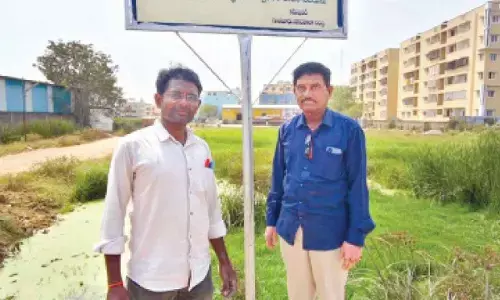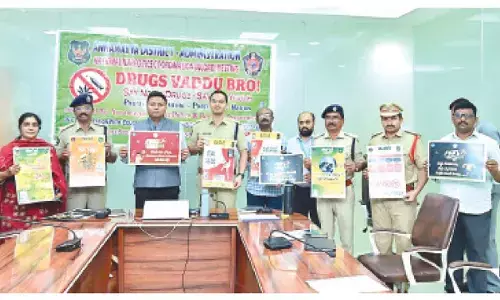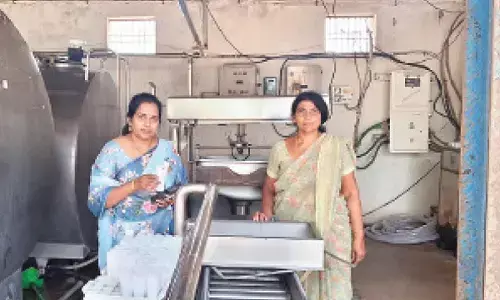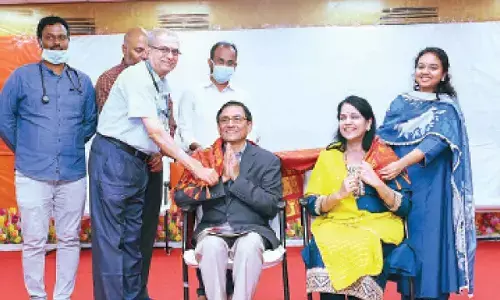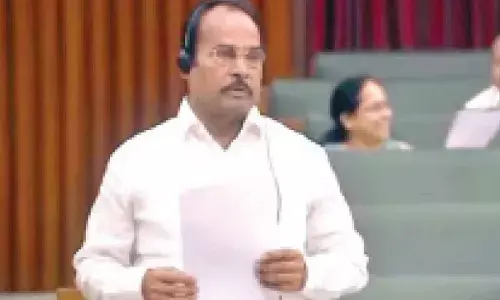How promotion of scientific temper can improve living standards

'The greatest threat to our planet is the belief that someone else will save it' -Robert Swan
'The greatest threat to our planet is the belief that someone else will save it' -Robert Swan
Why is the country's capital clogged with air pollution? What are the factors that have promoted climate emergency? Why Delhiites are denied natural air? The answer for these queries is "Lack of scientific temper" and insensitivity. As a democratic country, we have failed to create awareness among the masses about personal hygiene and to follow the practise that will promote the understanding about environment and its pollution.
The education sector and its focus have its orientation only on promoting academic excellence instead of efficient application of the same. Today's man is hardly trying to realise the remark of Robert Swan "The greatest threat to our planet is the belief that someone else will save it". To save the nation and society we need to impart the science education in a meaningful way is very indispensable. For that, we need to chalk out certain strategies for science teaching. Further, the science education should have to disseminate the significance of interdependence and relationship of both biotic and abiotic factors in an ecosystem.
Education is not only filling the minds of people with facts; but to make them to utilise the same for the betterment of their living standards. Particularly, the science education should improve the scientific temper among the individuals and should convert them as rationale. But in our country science has been taught as a mere academic and classroom subject instead as a combination of common phenomena that are taking place in surroundings.
According to Nobel laureate in Medicine Dr.Rosalyn Yalon " Science is not simply collection facts. It is a discipline of thinking about rational solutions to problems after establishing the basic facts derived from observations .It is hypothesizing from what is known what might be and then attempting to test the hypothesis. Logical thinking must come first; the facts can come later". But when we assess the effectiveness of our science teaching strategies they are promoting facts without creating an atmosphere for logical thinking. "Crucial to science education is hands on involvement; showing not just telling; real experiments and field trips and not just virtual reality "This remark of Martin Rees not only emphasized the significance of practical approach in science teaching but also exposed the inability of our classrooms. It is an ill conceivable that yet we are unable to realise the proposal of the 1964-66 Indian education commission headed by Kothari about the science education "To learn science is to do science".
Our policy makers have ignored the significance of Nelson Mandela remark "Education is the most powerful weapon which you can use to change the world "and not focussed to create a constructive atmosphere for activity-based science teaching. It is an appalling fact that after 7 decades of independence still we are teaching science as an abstract fact instead of activity-based. There is a dire need of a complete paradigm shift in science teaching with the help of technology. The ineffective way of science teaching had its grave effect on the nation in all areas such as 1) Environmental pollution 2) Agriculture 3) scientific temper development 4) Conservation of natural resources 5) Health and nutrition 6) Exploring the nature for the future needs 7) Research and development and almost every walk of the life. So, it is very essential to impart the science in more effective way by changing the traditional teaching strategies.
The very objective of teaching science should be to notice the relationship between abiotic and biotic factors and to promote the balance between them. It was aptly remarked by Abraham Lincoln "Teach the children so it will not be necessary to teach the adults". To produce more rationale people we need to follow some strategies that will place the child at the centre of teaching learning process with purposeful experiences.
These strategies (see box) should not be static for decades together they should be dynamic and incorporation of the latest developments of science should be made compulsory through the scientific conversations. Further it is better to introduce modern scientific research as a subject by adding up day to day developments in science research with the help of science websites. It is really a bad wish to anticipate more creators from our children without igniting their creativity. They are just buying their time in the school by reproducing the learned subject matter instead producing a new object. So, to produce more creators our schools should have relations with science research stations and scientists. It was rightly remarked by Allan Tower Waterman" Effective science teaching calls for active contact with research and those teachers need to mingle with other scientists and to know what is going on in the field'.


